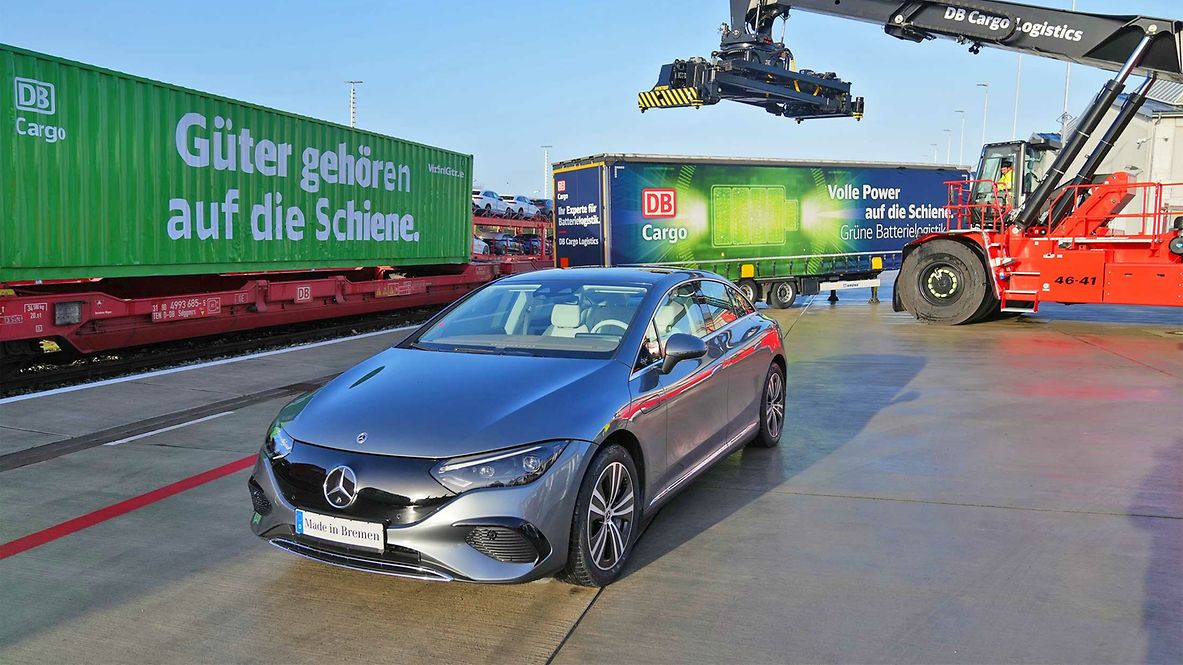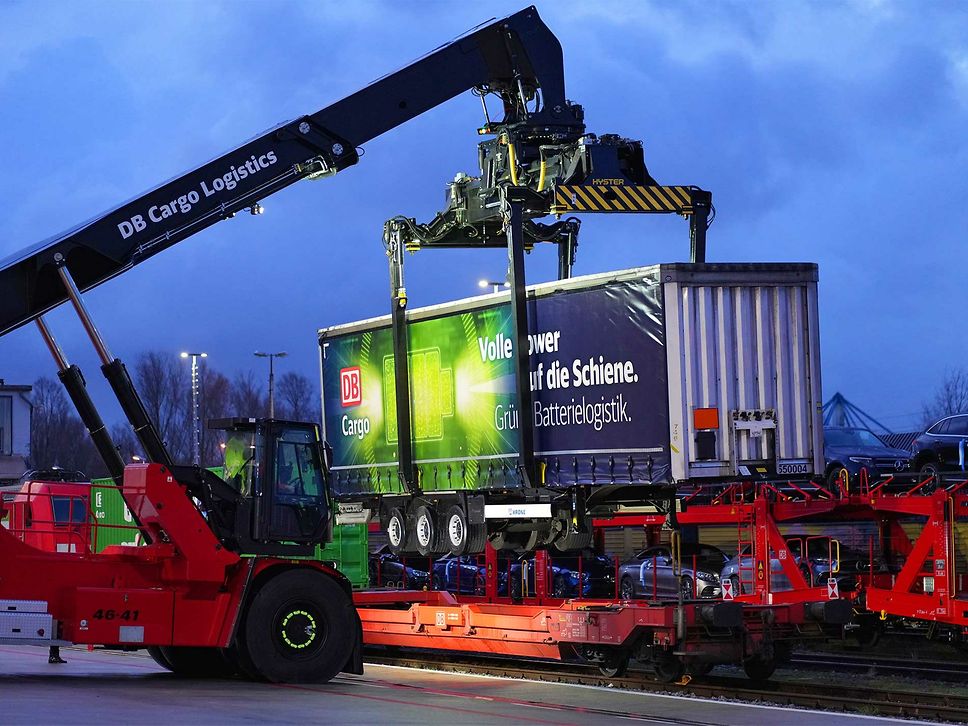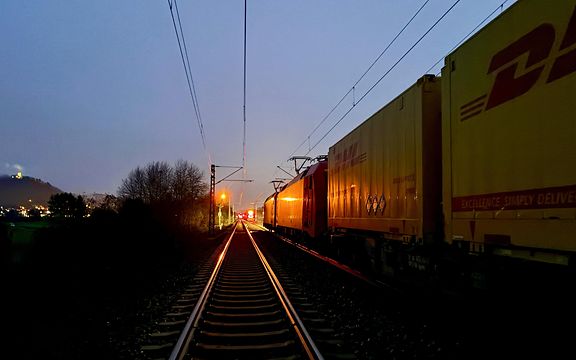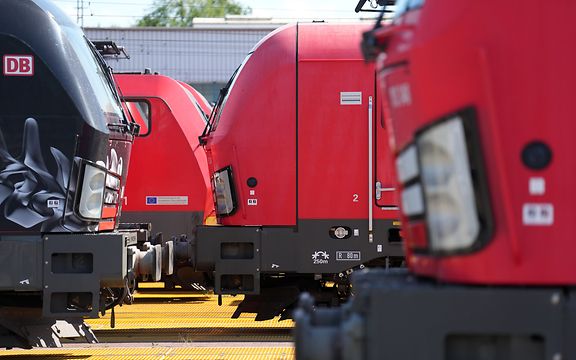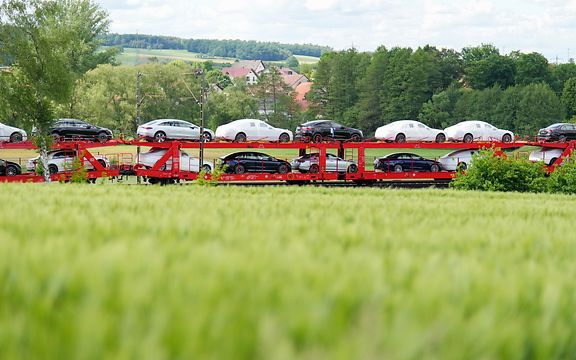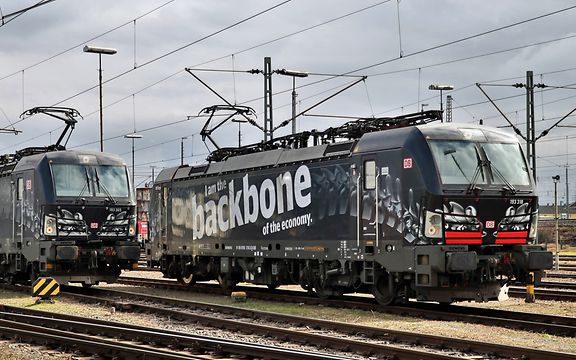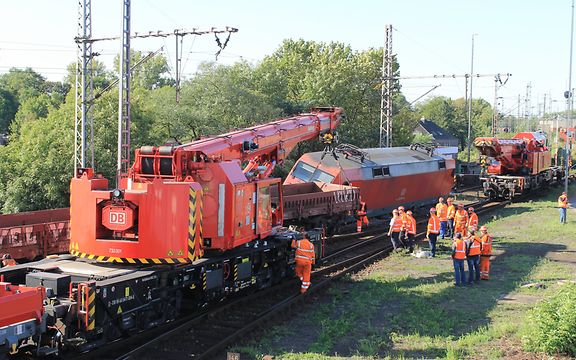Sustainable mobility is literally electrifying the automotive industry. One of the mainstays of the German economy is transitioning to greater sustainability and is providing climate-friendly answers to the continuing demand for mobility. But an electric car that's eco-friendly to drive isn't the only factor that customers consider. Green supply chains and the carbon footprint of vehicle production are also important. This is where environmentally friendly rail comes into play. Lithium-ion batteries are at the heart of every electric vehicle. That means that batteries are also the focus of carmakers' production and logistics concepts. Transport must be specially designed to meet the specific requirements of batteries. This is where a showcase project by DB Cargo Logistics figures into the equation: the newly opened Automotive Logistics Center, or ALC for short, in Bremen. But first things first.
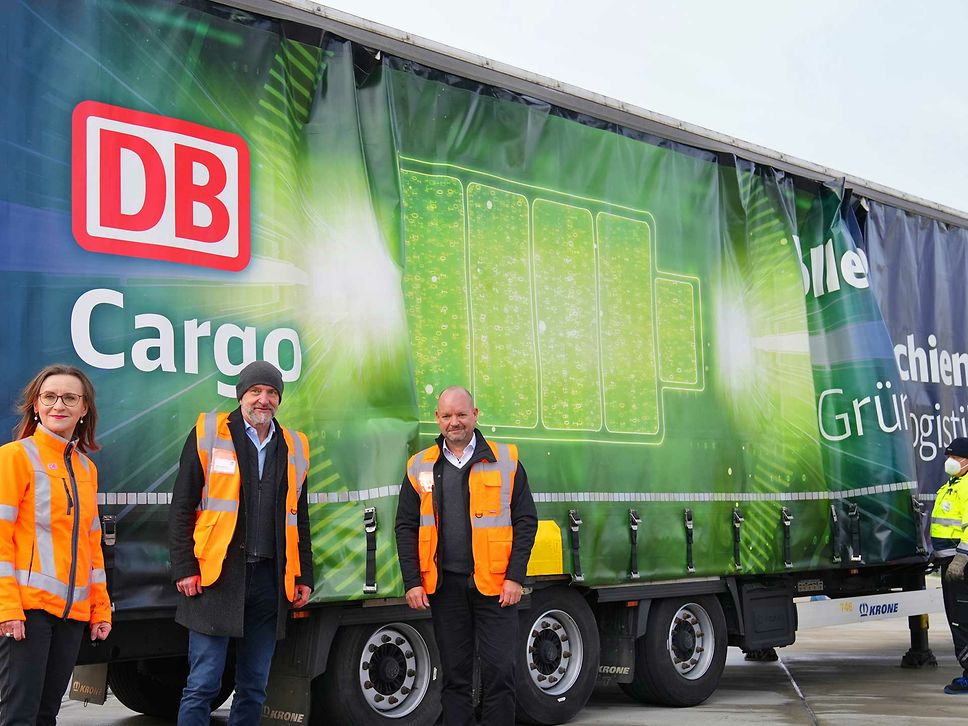
Well connected
DB Cargo Logistics has been a partner to the automotive industry for many years, offering efficient, safe and eco-friendly transport for vehicle components and finished vehicles. Its services are based on the Automotive RailNet, which connects numerous automotive plants with each other as well as to major suppliers, customer locations and seaports. Battery manufacturers and cell suppliers are increasingly building plants in Germany and Europe. These plants are now being connected to this proven network based on the Plug-and-Play idea, similar to a USB stick. New locations can use the existing network almost immediately. If no appropriate network access points are available, DB Cargo Logistics expands its own logistics infrastructure to enable, simplify and optimise use of the rail system. That is why there has been such momentum to build specialised battery logistics centres with rail connections at various locations.
Full power for battery logistics
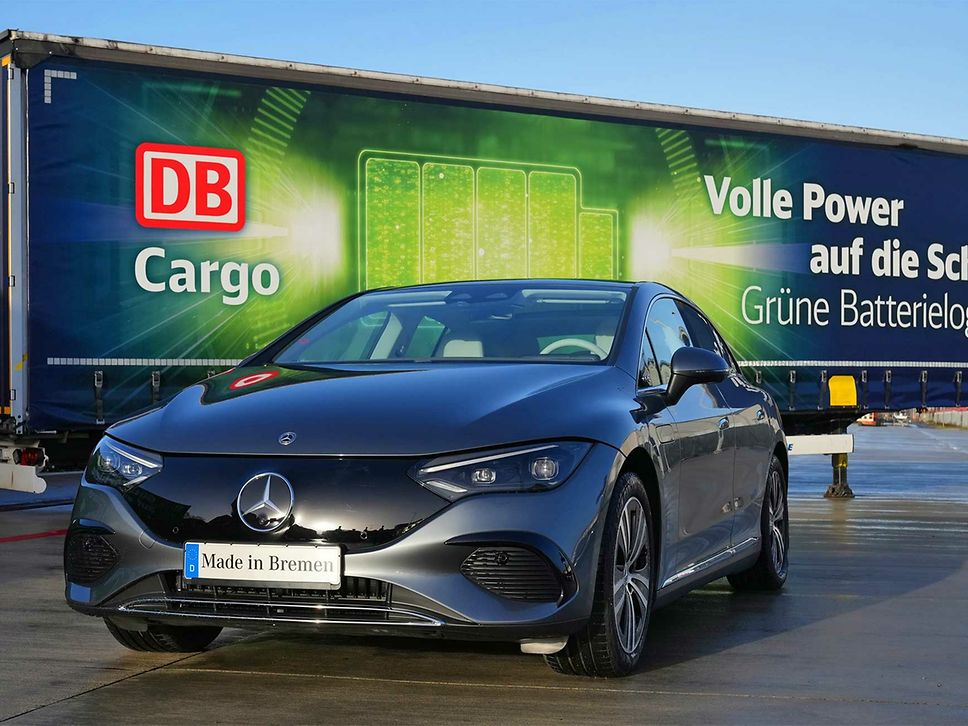
These developments were also behind construction of the Automotive Logistics Center in the immediate vicinity of the Mercedes-Benz plant in Bremen. Sections of the ALC gradually went into operation in 2021, and the ALC has now officially opened. "We are proud that Mercedes-Benz not only entrusts us with the delivery of new vehicles to all European countries, but also with the plants' supply of the new heart of electric cars – the batteries. These are not exactly light, are delicate to handle and have to be transported with great care until they reach the assembly line. So a DB Cargo train is quite naturally the climate-friendly means of transport of choice." said Dr Sigrid Nikutta, CEO and Chair of the Management Board of DB Cargo, at the opening. Jens Nöldner, CEO of DB Cargo Logistics, added: "Through our rail logistics services, we want to be an important part of our customers' production and logistics chains – that includes handling, storing, sequencing and delivering battery modules directly to the production line. The ALC is able to do all of this."
Plant supply by rail
Now for the details. The Automotive Logistics Center in Bremen offers a whole range of rail logistics services to support inbound logistics at the Mercedes-Benz plant – via a rail transshipment facility, trailer yard and battery centre.
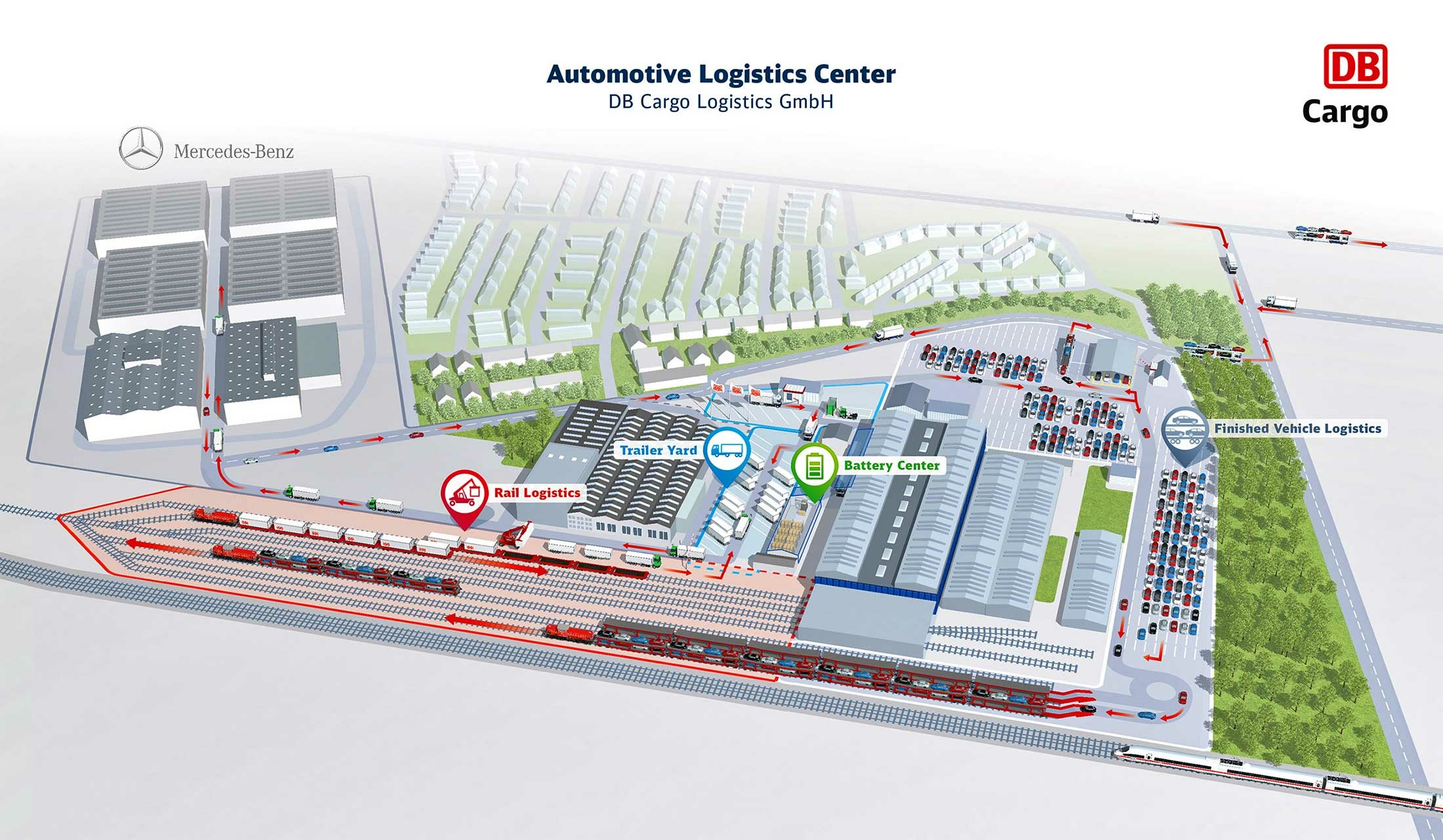
More about: Transshipment facility
The ALC's transshipment facility is designed specifically for rail-based delivery of batteries. Two tracks and a wide unloading lane create flexibility for loading incoming trailers. A reach stacker lifts load units from freight cars, which are then transported by electrically powered tractors to the trailer yard, to the battery centre or directly to the plant.
More about: Trailer yard
Just-in-time and just-in-sequence set the pace in automotive logistics. The ALC's trailer yard is set up accordingly. With 50 parking spaces, it offers plenty of room for storing incoming trailers temporarily. Loaded with batteries and other vehicle components, the trailers arrive at the ALC by rail and road As soon as the components are needed at the plant, DB Cargo Logistics delivers them directly to the assembly line in the correct sequence using electric tractors. They arrive within 45 minutes to ensure optimum line feeding.
More about: Battery centre
Incoming batteries are sequenced, or pre-sorted, at the battery centre. The components are loaded from triple racks for transport onto single racks for production with the help of a pneumatic splitting device and placed in the correct sequence for assembly. Several hundred modules can be processed in this way each day. The 3,700 square metre centre also has space to store up to 840 batteries for plug-in hybrids and 670 batteries for fully electric vehicles.
Why batteries belong on trains
In terms of weight, safety and sustainability, rail is better for transporting car batteries than any other mode. One freight train can transport as many batteries as 52 trucks. Rail is much safer than road transport in terms of frequency of accidents and is also the most environmentally friendly transport option. Every tonne transported by rail saves 80% of CO2 emissions compared with road transport. It's also important to know that the life cycle assessment of every new electric car includes not only its low-emission operation; it also includes the carbon footprint of production and the supply chain. That means that carmakers that use rail make their logistics chains for e-mobility much more sustainable.
Also interesting: The Auto Terminal Bremen
The 70,000 square metre Auto Terminal Bremen, or ATB for short, has been the central, multimodal distribution hub for the Mercedes-Benz plant in Bremen since 2014. Up to 220,000 new vehicles are inspected, handled and transported onward every year – by rail over long distances or by truck over short distances. As the releasing agent, DB Cargo Logistics handles the transfer of the new cars from the factory premises to the ATC, including quality control, document management and service for all downstream transport processes.
